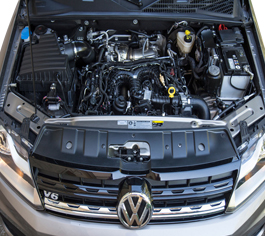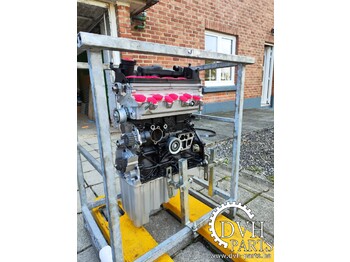Navigating the Refine of Engine Selection: Key Variables to Take Into Account
The procedure of engine option is a complex endeavor that requires careful examination of several crucial variables to make sure placement with operational objectives. Efficiency requirements, fuel performance, and budgetary restraints are simply the start; factors to consider around ecological impact and maintenance support play a crucial role in the decision-making framework.
Efficiency Demands
When choosing an engine, it is critical to develop clear efficiency needs that align with the designated application. Performance demands incorporate an array of variables, including power outcome, torque characteristics, and responsiveness, which need to be customized to the details demands of the vehicle or equipment concerned.
Power result, normally measured in horse power, figures out the engine's capacity to thrust a vehicle or carry out a task successfully. Torque, on the various other hand, is vital for applications needing solid preliminary acceleration or heavy training capabilities. An understanding of the operational setting is additionally important; for circumstances, engines created for off-road applications may need different performance features compared to those planned for freeway usage.
In addition, consider the functional load and duty cycle, as these variables influence the engine's longevity and reliability. In high-load situations, a durable engine style might be essential to avoid early wear or failing. In addition, performance demands need to additionally incorporate considerations for exhaust criteria and governing compliance, specifically in regions with rigid ecological policies. By specifying these efficiency criteria early in the option procedure, stakeholders can make informed decisions that improve overall operational performance and efficiency.
Gas Efficiency Considerations
While efficiency requirements are vital, gas performance is just as crucial in the engine choice procedure, as it straight impacts operating costs and ecological sustainability. Fuel-efficient engines eat much less gas each of job carried out, which not just minimizes total expense however likewise minimizes greenhouse gas discharges. As companies significantly prioritize sustainability, selecting an engine that enhances gas effectiveness can improve company responsibility and conformity with environmental guidelines.
When examining gas performance, it is necessary to take into consideration the engine's layout and technology - amarok engine for sale. Innovations such as turbocharging, direct fuel shot, and hybrid systems can significantly improve fuel economy. In addition, recognizing the operating problems and responsibility cycles of the engine application is essential; engines may do in a different way under varying tons and speeds
Furthermore, producers often provide gas intake information that can be made use of to contrast different engine alternatives. In summary, fuel effectiveness is a multi-faceted consideration that requires complete evaluation throughout the engine selection process.
Budget and Expense Analysis
Budget plan and expense analysis works as an essential component in the engine choice procedure, influencing both short-term financial investments and long-term operational costs. When reviewing possible engines, it is necessary to think about not only the initial purchase rate however likewise the complete expense of ownership, which includes setup, maintenance, fuel intake, and potential downtime.
A thorough evaluation must start with the in advance expenses connected with the engine, including essential adjustments or ancillary equipment. Concentrating entirely on initial expenditures may lead to illinformed decisions. Evaluating operating expenses over the engine's life expectancy is equally vital, as more pricey engines might offer exceptional fuel efficiency or decreased maintenance requirements, eventually causing cost financial savings.

Environmental Effect Elements
Understanding environmental influence elements is vital in the engine choice procedure, as sustainability factors to consider have actually ended up being significantly essential for both regulative conformity and corporate responsibility. Organizations has to review the exhausts generated by various engine kinds, including co2, nitrogen oxides, see particle issue, and unburned hydrocarbons. These discharges add dramatically to air contamination and climate change, necessitating a careful analysis of the engine's environmental impact.
Moreover, gas type plays a crucial function in environmental impact. Engines powered by renewable resource sources, such as biofuels or hydrogen, have a tendency to have a lower environmental influence contrasted to traditional fossil gas. Additionally, the lifecycle evaluation of the engine, from production through operation to disposal, must be taken into consideration to understand the complete range of its environmental implications.

Upkeep and Assistance Choices
When selecting an engine, the accessibility of upkeep and assistance choices is a crucial consideration that can dramatically impact functional performance and durability. Comprehensive upkeep plans make sure that the engine runs at peak efficiency and reduces unforeseen downtimes. It is important to review the maker's support network, consisting of the schedule of certified specialists and service centers.
Analyzing the access of spare parts is likewise crucial. A reputable supply chain for elements can reduce preparations for fixings and maintenance, therefore improving total productivity. Furthermore, consider the simplicity of obtaining technological documents and training sources, which are essential for guaranteeing that employees are well-equipped to manage regular and emergency situations.
Another crucial factor is the service warranty and service agreements offered by the supplier. Ultimately, a proactive method to upkeep and support not only prolongs the life of the engine but additionally adds to the total success of the procedure.
Final Thought
In final thought, the process of engine option requires a comprehensive analysis of various essential variables, including performance needs, fuel effectiveness, spending plan restraints, ecological impact, and upkeep assistance. By thoroughly examining these aspects, informed choices can be made that straighten with functional objectives and sustainability goals. Ultimately, a calculated technique click here for info to engine option will guarantee optimum efficiency and longevity while resolving ecological and monetary factors to consider properly.
While efficiency demands are essential, gas efficiency is similarly important in the engine selection procedure, as it straight affects operating expenses and environmental sustainability. As companies increasingly prioritize sustainability, selecting an engine that enhances fuel efficiency can enhance business obligation and compliance with ecological policies.
Furthermore, recognizing the operating problems and responsibility cycles of the engine application is important; engines may perform in a different way under differing speeds and loads. (amarok engine for sale)
Examining operating costs over the engine's lifespan is similarly important, go to website as much more pricey engines may offer premium fuel performance or decreased maintenance requirements, ultimately leading to cost savings.
In verdict, the process of engine option requires a detailed examination of various crucial variables, consisting of performance requirements, gas performance, spending plan restraints, environmental effect, and upkeep assistance. - amarok engine for sale